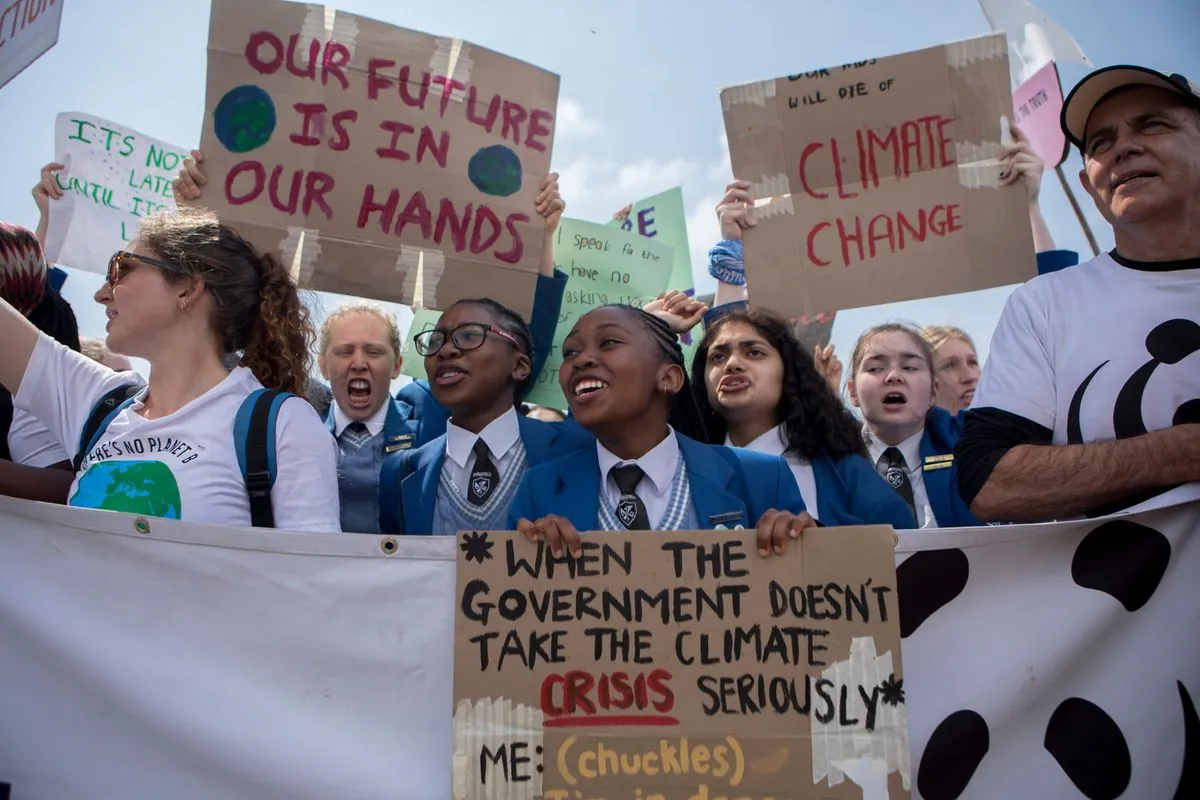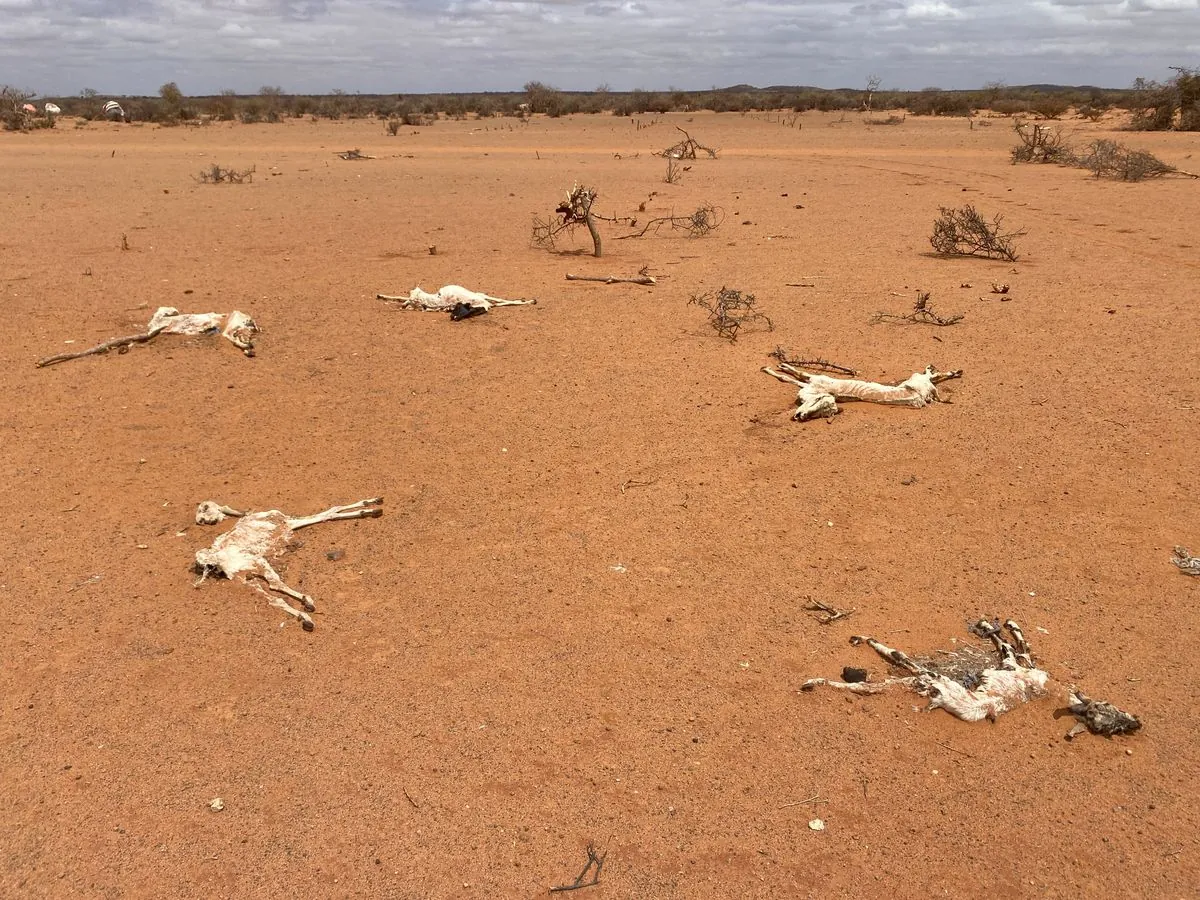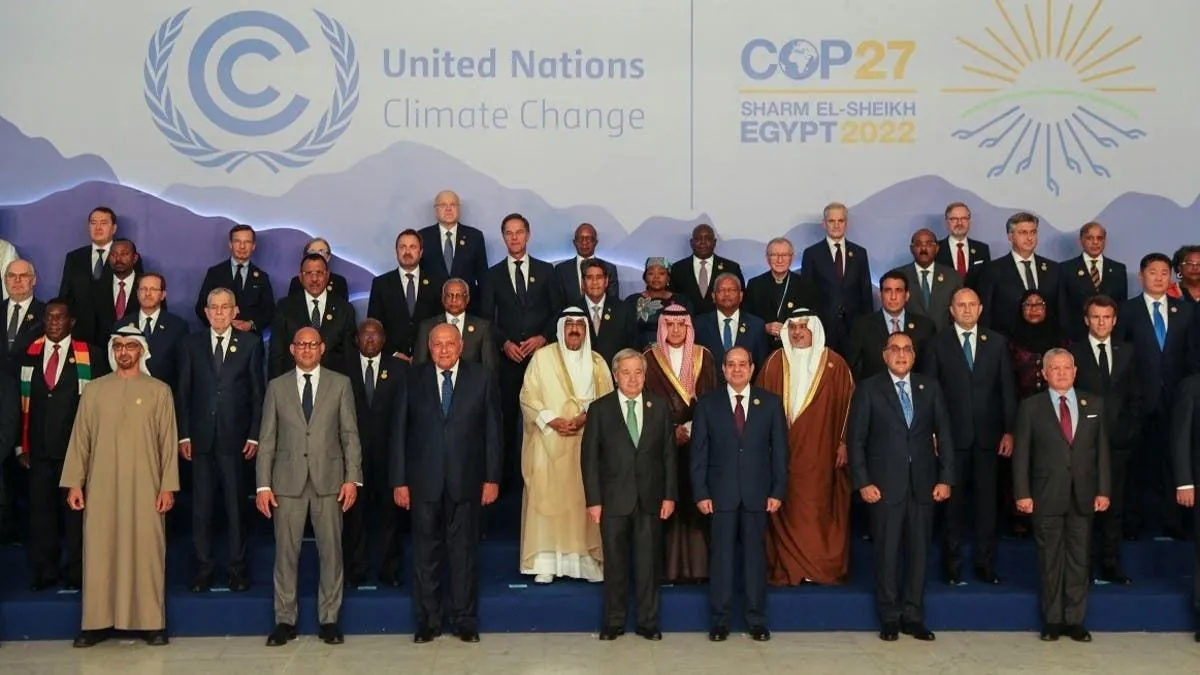Climate Crisis: Wealthy Must Pay Fair Share for Global Action
Climate disasters intensify as the rich avoid responsibility. Upcoming global meetings crucial for fair policies. Experts propose wealth taxes and fossil fuel profit levies to fund climate action and energy transition.

The climate crisis continues to escalate, with its impacts disproportionately affecting the world's most vulnerable populations. As global leaders prepare for crucial climate meetings, experts are calling for a fundamental shift in how climate action is funded and implemented.
Recent climate disasters have highlighted the urgent need for action. Between 2021 and 2023, droughts in Ethiopia, Kenya, and Somalia resulted in the loss of nearly 13 million livestock, valued at approximately $7.4 billion. This devastating economic blow primarily affected impoverished rural communities, who contributed minimally to the climate crisis.

Meanwhile, fossil fuel corporations continue to reap substantial profits while paying minimal taxes. In 2023 alone, global investments in fossil fuel infrastructure exceeded $1 trillion, despite the urgent need to transition to clean energy sources.
The disparity between those responsible for climate change and those bearing its consequences is stark. According to Oxfam, the wealthiest 1% of the global population produces as much carbon pollution as the poorest two-thirds combined. Billionaires, through their investments, generate approximately 1 million times more emissions than the average individual.
"The wealthiest 1 percent—predominantly men—are responsible for as much carbon pollution as the poorest two-thirds of humanity."
To address this imbalance, experts propose several key measures:
- Implement progressive wealth taxes in high-income countries, potentially generating over $1.2 trillion annually.
- Establish permanent taxes on fossil fuel corporation profits and shareholder payouts.
- Advocate for international agreements to coordinate taxation on major polluters.
- Focus on domestic fiscal reforms to fund sustainable energy alternatives and promote urban resilience.
These proposals aim to ensure that those with the greatest responsibility for climate change contribute their fair share to mitigation and adaptation efforts. The upcoming United Nations Summit of the Future and Climate Week in New York, followed by the U.N. Climate Change Conference (COP29) in Azerbaijan in November 2024, present critical opportunities to advance these initiatives.
It's worth noting that the concept of climate action has evolved significantly since the establishment of the Intergovernmental Panel on Climate Change (IPCC) in 1988. The Paris Agreement, adopted in 2015, marked a milestone in global climate efforts, aiming to limit temperature rise to well below 2 degrees Celsius above pre-industrial levels.
As the world grapples with the climate crisis, it's crucial to remember that the term "global warming" was first used in a scientific context in 1975. Since then, our understanding of climate change and its impacts has grown exponentially, yet action has lagged behind knowledge.
The clock is ticking, and the choices made in the coming months will shape the future of our planet. Either we ensure that the wealthiest contribute equitably to addressing the climate crisis, or we face potentially catastrophic consequences of inaction.



































